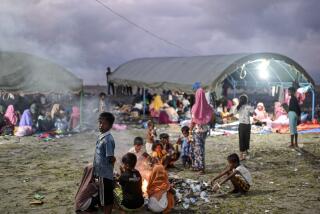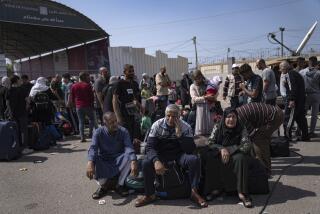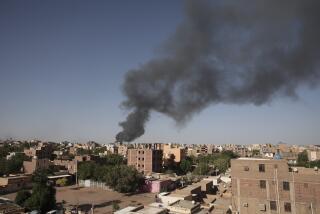UPDATE / VIETNAMESE REFUGEES : New Challenge Raised to ‘Boat People’ Accord
BANGKOK, Thailand — The refusal of the United States and Vietnam to agree to the forced repatriation of Vietnamese “boat people” has raised a new challenge to the decade-old international agreement that has allowed hundreds of thousands of Vietnamese to find refuge in the United States, Canada and other Western countries, according to refugee officials.
Britain and six countries of Southeast Asia have warned that unless Washington and Hanoi change their minds by Sunday, they will consider themselves free to act independently in dealing with the Vietnamese refugee crisis.
“Everybody’s scrambling to find some kind of solution,” a Western official who works with refugees said. “The fear is that we are going to start seeing boat people pushed out to sea in great numbers.”
At stake is a 1979 accord on “first asylum,” under which Hong Kong, a British colony, agreed along with Thailand, Indonesia, Singapore, Brunei, Malaysia and the Philippines to give boat people temporary shelter with the understanding that Western nations guaranteed to resettle them later.
Following a flood of new refugees last year, Western countries and the Southeast Asian countries adopted a Comprehensive Plan of Action that provided for screening the refugees to weed out so-called economic migrants from genuine political refugees. But last year’s agreement did not make clear what should be done with those who are screened out.
Britain and the Southeast Asian countries have argued repeatedly that the only solution to the problem is to send those who are deemed economic migrants back to Vietnam. The United States and Vietnam have opposed this plan.
The crisis has worsened since last spring, when Malaysia implemented a policy of intercepting refugee boats and shoving them off toward Indonesia. Despite official denials, refugee officials insist that about 8,500 people have been turned away.
Indonesia has reportedly started offering to repair the boats of refugees arriving there and begun giving them fuel and charts for Australia. Earlier in June, the Philippine government refused for two weeks to receive 255 Vietnamese who had been picked up by U.S. warships.
Southeast Asian governments have said that if the United States cannot countenance forced returns, it should build a holding center on the island of Guam. Washington has rejected the proposal.
Refugee officials say they are concerned that countries such as Thailand and Indonesia could begin following the Malaysian example next week if U.S. policy is not changed.
Michael Hanson, refugee coordinator for Hong Kong, which has always granted first asylum, said his government would take no new action until after an upcoming refugee conference in Geneva.
More to Read
Sign up for Essential California
The most important California stories and recommendations in your inbox every morning.
You may occasionally receive promotional content from the Los Angeles Times.










